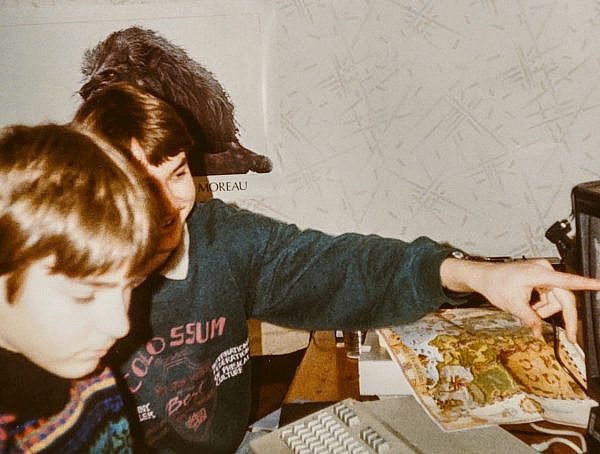Previous research has shown that games can be used as a form of bonding activity. Besides family board games nights or weekly poker games among friends, digital games have been increasingly employed to help form new relationships and strengthen existing ones. To explore how multiplayer game mechanics facilitate social closeness, Depping & Mandryk conducted an experiment based on the 2D board-style puzzle game called Labyrinth.
According to Depping and Mandryk, cooperation (vs. competition) and interdependence (vs. independence) can be considered as the two main collaborative factors affecting the social closeness of players. Based on a survey carried out among participants who had played Labyrinth, they evaluated how these two factors interact and how do they affect relationships individually. The game board of Labyrinth consisted of tiles, which could be manipulated with to create paths through the maze. Using the arrow keys, players moved their avatar to collect gems positioned on the paths. If a gem was not reachable, they could reconfigure the maze to create new paths.
To induce interdependence and independence of players, the researchers used two strategies. In the first one, one player was able to move walls but not to collect gems (pusher), whereas the other player had it the other way around (collector). In this way, a high level of dependency of the players was created. In the second version, each player could use both abilities.
To operationalize the cooperation, players’ goal was manipulated. In the cooperative version, players were instructed to cooperate with each other to collect as many gems as possible as a team. The goal of the competitive version of the game was to compete for the gems and to maximize the number of gems each player collected individually.
The participants played four versions of the game, each of them combining the collaborative factors in a different way. In the first version, which was interdependent and collaborative, two players with different abilities had to cooperate to collect gems as a team. In the second version, the collector had to collect as many gems as possible, whereas the pusher’s score was based on the number of gems they prevented the collector from reaching. In the cooperative and independent version, both players were able to push walls and collect gems, but they were collecting the gems as a team. In the last version, two independent players were instructed to collect more gems than their rival.
The results of the study demonstrate that both cooperating and interdependence individually increase the relatedness the players experienced during the game, game enjoyment, and interpersonal trust. Moreover, the effort the players invested in the game increased when they shared a goal with another player. Depping and Mandryk claim that both collaborative factors affect relationships between players and they do not necessarily have to be combined to increase the social closeness. However, since they are additive, a game that is both cooperative and interdependent can help form new and maintain existing relationships between players is the best option when designing games indented to promote social closeness.
The article Cooperation and Interdependence: How Multiplayer Games Increase Social Closeness by Ansgar E. Depping and Regan L. Mandryk was published at the Chi PLAY 2017 Symposium on ComputerHuman Interaction in Play and can be accessed via http://st.sigchi.org/publications/toc/chi-play2017.html.
The pictures used in this article are from https://ccsearch.creativecommons.org/.
You might also like
More from Game Research Highlights
How do you want to do this? – A look into the therapeutic uses of role-playing games
Can playing RPGs contribute positively to your wellbeing? A recent study aims to find out how RPGs are being used …
Eldritch horrors and tentacles – Defining what “Lovecraftian” is in games
H.P. Lovecrafts legacy lives today in the shared world of Cthulhu Mythos and its iconic monsters. Prema Arasu defines the …
Are Souls Games the Contemporary Myths?
Dom Ford’s Approaching FromSoftware’s Souls Games as Myth reveals the Souls series as a modern mythology where gods fall, desires …
















